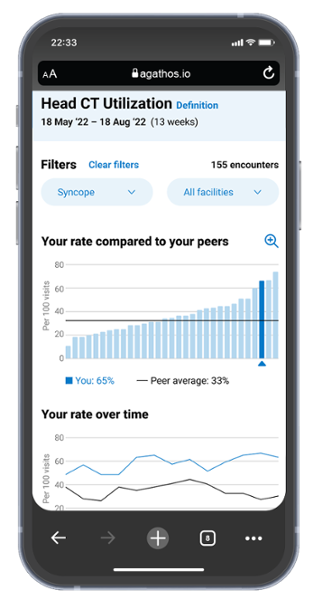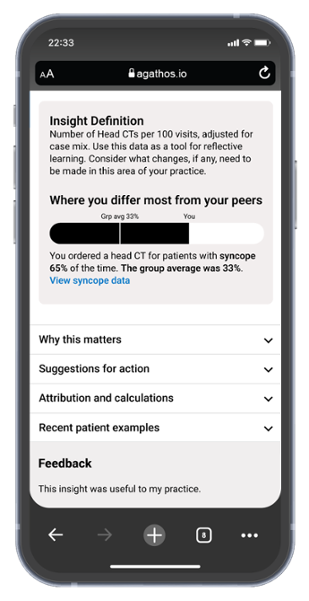FOR LOWER COST, HIGH-VALUE CARE, PHYSICIANS NEED A BETTER GPS
- Natasha Hagemeyer, PhD
- 12/1/2022
Have you ever been in a situation where your GPS couldn’t figure out what road you were on, and kept giving you the wrong directions? Telling you to get on onramps that don’t exist, or worse, to drive off bridges to get to the road below? Many times, the dashboards provided by EHR services are just as useless to the individual physician. When data is summarized by physician group or hospital, a physician’s roadmap is obscured by the actions of everyone around them instead of being tailored to their own route.
Every physician differs in their practice patterns, and in order to improve their patient care, physicians need to be able to see their own, individualized data. Just as importantly, bombarding physicians with more information than they can use will only build data fatigue and wear out already hardworking people. Physicians must be given accurate, individual, actionable data in order to chart their own path.
You are here
Agathos is committed to providing this information to physicians. We believe that doctors care deeply about their practice and their patients, and that giving physicians a full picture of their location on the map of practice patterns is the tool they need to steer themselves through the complicated medical world. These screen shots give examples of the helpful data Agathos delivers.


In a big data world, models matter
In a “big data” world, how can Agathos provide the right information to the right physicians? For a data scientist, the answer is modeling.
Models are a way of teaching a computer to do the number crunching of identifying patterns in the data. A computer is much faster at math than a human, so with models we can examine millions of data points instead of only a few. This allows us to do more complicated analyses, taking into account more data and producing highly tailored results.
Data Scientist James Martino, PhD shares a little about the data science behind Agathos’ individualized physician data in this brief video below.
Physician practice patterns like a daily commute
Let’s imagine a physician’s practice patterns like a daily commute. Physicians, like commuters, come from a wide variety of backgrounds — what data scientists call “individual traits.” These can be things like personality, training, and habits, all of which can affect practice patterns. The metaphorical landscape — our driving route — is also variable. On a commute, that might be things like weather, accidents, or traffic. In medical practice, that can be things like facility, staffing ratios, and COVID-19. Before we can start to improve a commute, we need to understand and model all of these factors.
Predicting the best way forward
Once we build a good model of the commute (physician practice), we can ask the computer what would happen under new circumstances. Would the drive be faster if we skipped the congested highway and took a back route? Could we improve our drive if we leave fifteen minutes earlier? For Agathos, we examine what type of data and delivery will be the most useful tool for a physician to improve their practice and patient care. We believe physicians don’t need to be told what to do — they just need to know where they’re acting differently from others, and how those differences affect patients.
They’re the experts. Let’s give them the data to navigate!
About Author

Natasha Hagemeyer, PhD
Natasha is a Staff Data Scientist with Agathos and holds a doctorate in ecology. Previously, she conducted research in behavioral ecology. Currently, she leverages her data expertise to identify patterns and insights in healthcare data for improved patient care.

